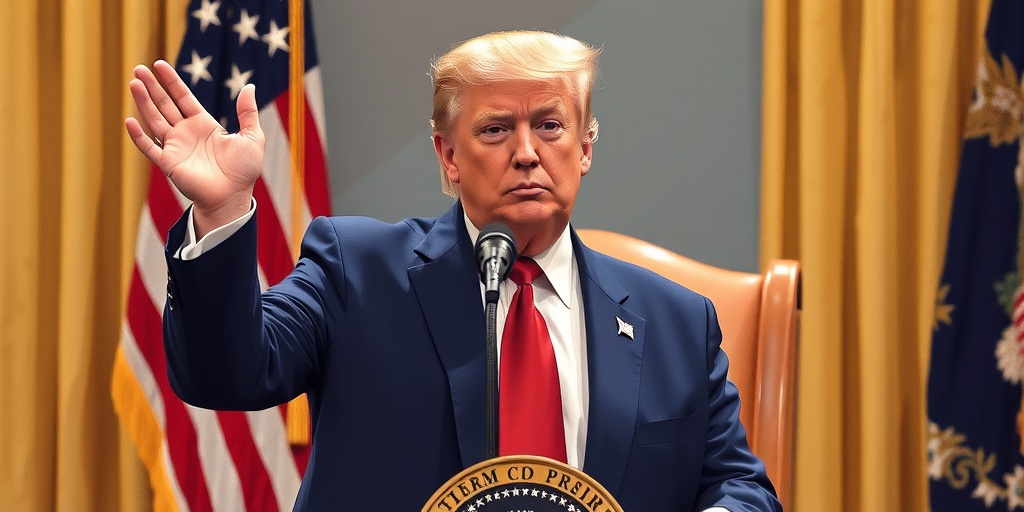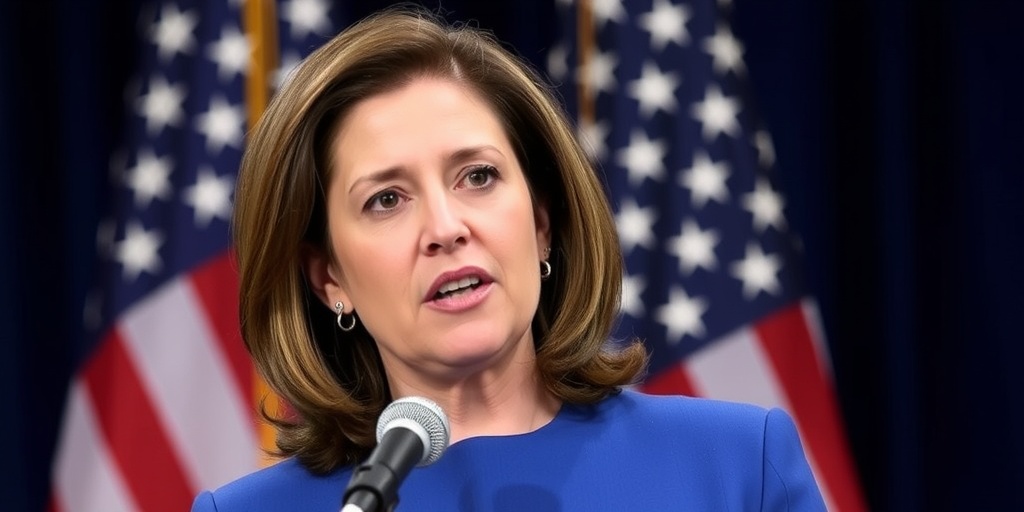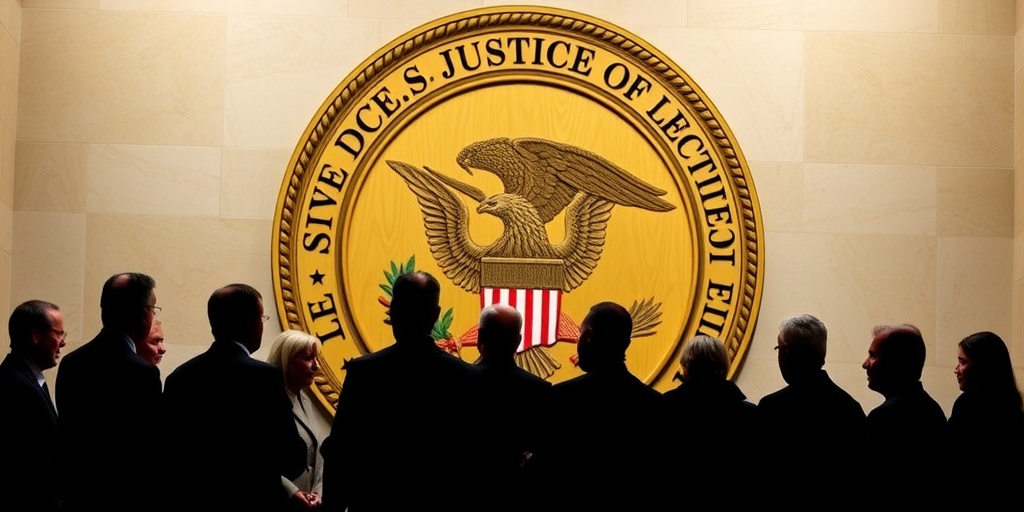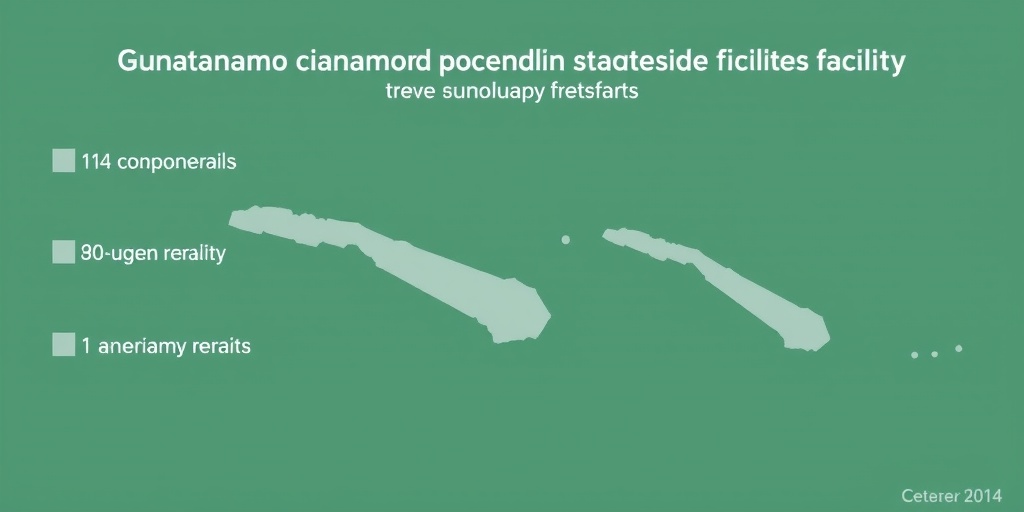Now Reading: Trump Official Abandons Testimony in Mass Firings Case
-
01
Trump Official Abandons Testimony in Mass Firings Case
Trump Official Abandons Testimony in Mass Firings Case
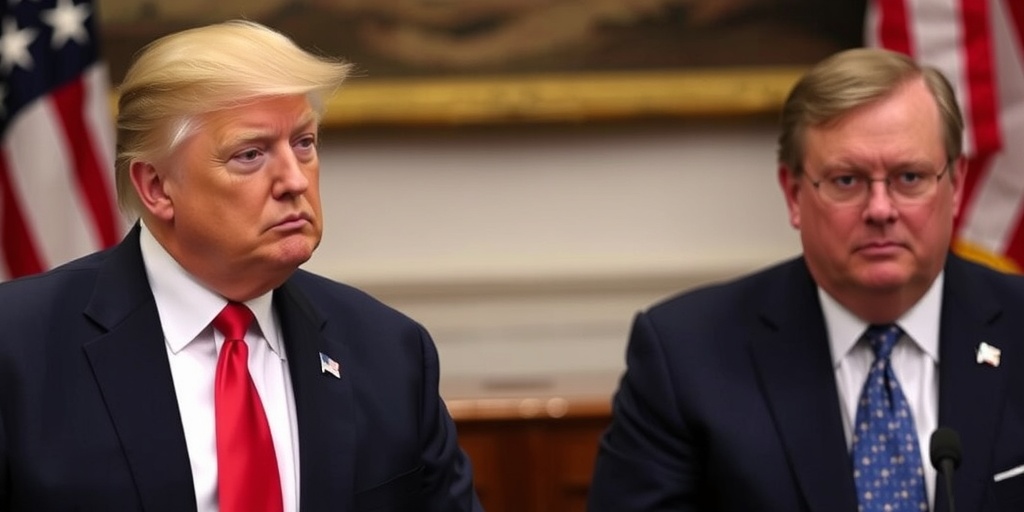
Federal Workers’ Mass Firings Face Legal Challenge as Acting O.P.M. Head Cancels Testimony
The ongoing legal battle over the mass firings of federal employees has taken a significant turn, as Charles Ezell, the acting head of the Office of Personnel Management (O.P.M.), will no longer testify in court as previously scheduled. This decision comes amidst a lawsuit filed by unions representing the affected workers, challenging the legality of recent terminations under the Trump administration’s directive.
Ezell was initially ordered to appear before a federal judge in San Francisco to provide testimony related to accusations that he and O.P.M. instigated a wave of firings among federal employees, particularly targeting those on probation. The unions contend that this directive exceeds O.P.M.’s legal authority and demands an injunction to halt the firings. Legal representatives for the government announced Ezell’s withdrawal from the hearing, which could potentially lead to a federal judge imposing a pause on the mass employee terminations.
Under Ezell’s leadership, the O.P.M. has embraced a controversial approach toward workforce management. In January, he began issuing directives that many agencies interpreted as orders to terminate employees, particularly focusing on probationary workers. This guidance has been scrutinized in multiple legal cases, positioning O.P.M. at the forefront of the Trump administration’s sweeping workforce reduction efforts.
A legal complaint filed by the employee unions accuses Ezell of holding a pivotal meeting on February 13 with leaders from various federal agencies, where he allegedly instructed them to terminate tens of thousands of staff members. Following this meeting, the O.P.M. provided a template for termination letters to agencies, indicating that employees were being dismissed for performance-related reasons—a claim challenged by the unions.
In response, Ezell filed a declaration on February 26 asserting that he never ordered terminations but merely provided guidance. However, the unions countered this by submitting evidence of communication that suggests the memos served as directives rather than recommendations.
On March 12, Judge William Alsup of the Northern District of California presided over arguments from both sides regarding O.P.M.’s authority and involvement in the mass firings affecting agencies such as the National Park Service and the Bureau of Land Management. Judge Alsup concluded that O.P.M. lacks the legal authority to mandate these terminations and ordered the government to retract previous memos instructing agencies to fire employees. He also scheduled a follow-up hearing for March 13, insisting that Ezell discuss his role in the firings.
Despite the judge’s insistence, the government indicated that Ezell would not comply, claiming that adequate evidence demonstrates that O.P.M. is not directing agencies to terminate probationary employees. As a result, the unions have expanded the scope of their lawsuit to include employees from 28 agencies, up from just five in their initial complaint. This extension reflects the extensive personnel changes that have occurred since President Trump’s return to office and the opaque nature of decision-making surrounding the firings.
During a joint congressional address on March 4, President Trump identified Elon Musk as the head of the Department of Government Efficiency, purportedly overseeing the mass firings within the federal workforce. However, just two days later, Trump clarified to his cabinet members that they are responsible for reducing staff within their respective agencies, distancing Musk from the oversight process.
Despite this public clarification, there have been reports of Musk’s associates conducting investigations within federal agencies, requesting data and exerting considerable influence over labor matters. Ezell’s testimony was seen as a crucial opportunity for the unions to question him about O.P.M.’s involvement in the implementation of the government’s workforce reduction strategy, especially as the legal situation continues to evolve.
As the date of the hearing approached, the court clerk confirmed that the court proceedings would still occur, even without Ezell’s testimony. The implications of this ongoing legal battle could substantially impact the future of federal employment policies and the authority of the O.P.M. amidst the broader discussions of government downsizing initiated under the Trump administration.
Ezell’s tenure at O.P.M. began on Inauguration Day, and before ascending to this role, he held a lower-level position overseeing data analytics and served as a consultant for the agency, according to his professional profile. The ramifications of these decisions and the legal challenges they provoke are likely to unfold in the coming weeks as the litigation progresses.
This case not only highlights the contentious nature of federal employment policies currently but also sheds light on the mechanisms through which such large-scale workforce changes occur within the government, prompting significant public and political scrutiny.
Stay Informed With the Latest & Most Important News
Previous Post
Next Post
-
 01New technology breakthrough has everyone talking right now
01New technology breakthrough has everyone talking right now -
 02Unbelievable life hack everyone needs to try today
02Unbelievable life hack everyone needs to try today -
 03Fascinating discovery found buried deep beneath the ocean
03Fascinating discovery found buried deep beneath the ocean -
 04Man invents genius device that solves everyday problems
04Man invents genius device that solves everyday problems -
 05Shocking discovery that changes what we know forever
05Shocking discovery that changes what we know forever -
 06Internet goes wild over celebrity’s unexpected fashion choice
06Internet goes wild over celebrity’s unexpected fashion choice -
 07Rare animal sighting stuns scientists and wildlife lovers
07Rare animal sighting stuns scientists and wildlife lovers














